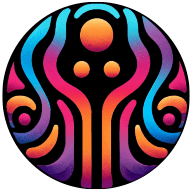Psychedelic therapy, once a taboo, is now gaining recognition in the medical field for its potential benefits. This blog post aims to shed light on the advantages of this unconventional therapy. We will delve into the science behind it, explore its potential applications, and address the controversies surrounding its use.
The Science Behind Psychedelic Therapy
Psychedelic therapy involves the use of mind-altering substances, such as psilocybin (found in magic mushrooms) or LSD, in a controlled therapeutic setting. These substances can induce altered states of consciousness, which can lead to profound changes in perception, mood, and thought patterns.
Psychedelics interact with serotonin receptors in the brain, which play a crucial role in mood regulation. This interaction can lead to an increased sense of connectedness, heightened emotional awareness, and a shift in perspective.
In a therapeutic setting, these effects can be harnessed to facilitate deep introspection and emotional processing. The therapist guides the patient through the experience, helping them to confront and reframe negative thought patterns or traumatic memories.
Potential Applications of Psychedelic Therapy
Psychedelic therapy holds promise for a range of mental health conditions. Several studies have shown its potential in treating depression, anxiety, post-traumatic stress disorder (PTSD), and addiction.
Depression and anxiety are among the most common mental health disorders worldwide. Traditional treatments, such as antidepressants and cognitive-behavioral therapy, are effective for many, but not all patients. Psychedelic therapy offers a novel approach, with early research suggesting it may provide rapid and sustained relief from symptoms.
In the case of PTSD, psychedelic therapy can help patients confront and reprocess traumatic memories, potentially leading to significant improvements in symptoms. Similarly, for addiction, psychedelics may help break the cycle of substance abuse by facilitating introspection and promoting behavior change.
The Controversies Surrounding Psychedelic Therapy
Despite the potential benefits, psychedelic therapy remains a controversial topic. The use of psychedelic substances is heavily regulated, and in many places, it is illegal. This has limited the amount of research that can be conducted and has led to a stigma around their use.
Critics argue that the long-term effects of psychedelic use are not fully understood and that there may be risks associated with their use. Some people may have adverse reactions to these substances, including severe anxiety or psychosis.
However, proponents of psychedelic therapy argue that the potential benefits outweigh the risks. They point to the growing body of research suggesting that, when used in a controlled therapeutic setting, psychedelics can be safe and effective.
The Future of Psychedelic Therapy
The future of psychedelic therapy looks promising. As research continues to grow, so does the acceptance of this form of treatment. Several countries, including the United States and Canada, have begun to loosen regulations around the use of psychedelics in research and therapy.
In the coming years, we may see more widespread use of psychedelic therapy in mental health treatment. This could revolutionize the field, providing new options for patients who have not responded to traditional treatments.
However, it is crucial that this progress is accompanied by rigorous scientific research and robust regulatory frameworks. This will ensure that psychedelic therapy is used safely and effectively, maximizing its potential benefits while minimizing risks.
Personal Experiences with Psychedelic Therapy
Many individuals who have undergone psychedelic therapy report profound and transformative experiences. They describe a heightened sense of connection to others and the world around them, profound insights into their own behavior and thought patterns, and lasting improvements in their mental health.
These personal experiences, combined with the growing body of scientific research, provide compelling evidence for the potential benefits of psychedelic therapy. However, it is important to remember that these experiences are highly individual and may not be representative of everyone's experience.
The Role of Therapists in Psychedelic Therapy
Therapists play a crucial role in psychedelic therapy. They provide guidance and support throughout the experience, helping patients to navigate the often intense and unfamiliar states of consciousness induced by psychedelics.
The therapist's role begins before the psychedelic session, preparing the patient for the experience and setting intentions. During the session, they provide a safe and supportive environment, helping the patient to process their experiences. After the session, they assist in integrating the insights gained into the patient's everyday life.
This supportive therapeutic relationship is a key component of psychedelic therapy and contributes significantly to its potential benefits.
Embracing the Potential of Psychedelic Therapy
Psychedelic therapy, despite its controversies, holds immense potential for mental health treatment. Its unique approach to therapy, combined with growing scientific evidence and personal testimonies, makes it a promising avenue for future research and application. As we continue to explore this field, we must do so with an open mind, rigorous scientific inquiry, and a commitment to ensuring the safety and well-being of patients.

